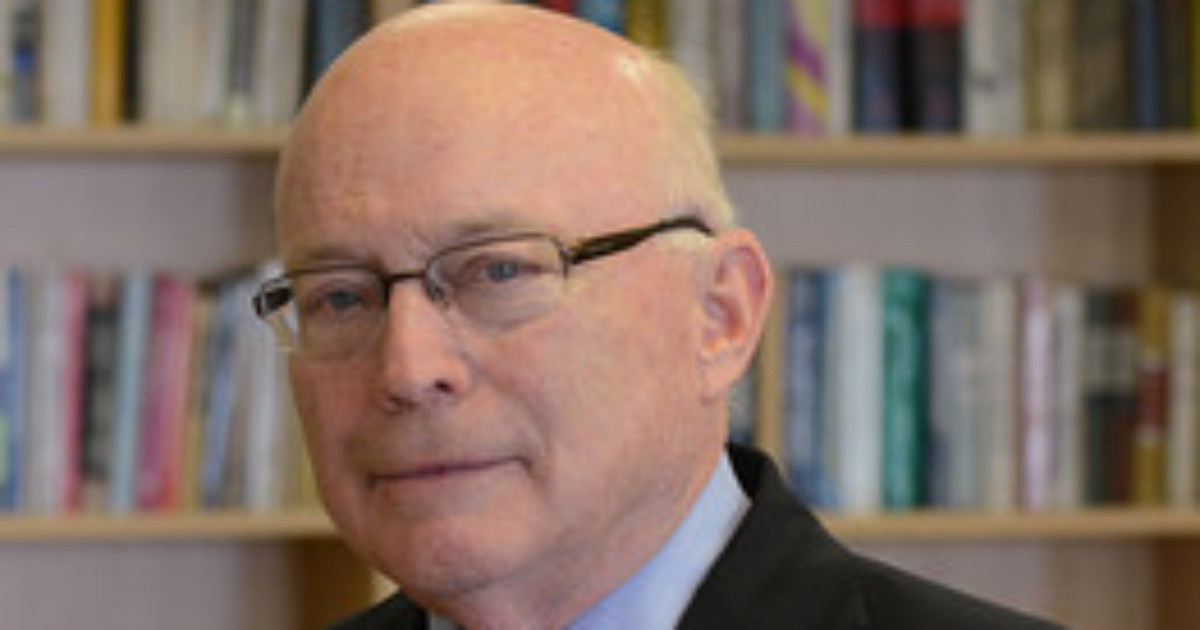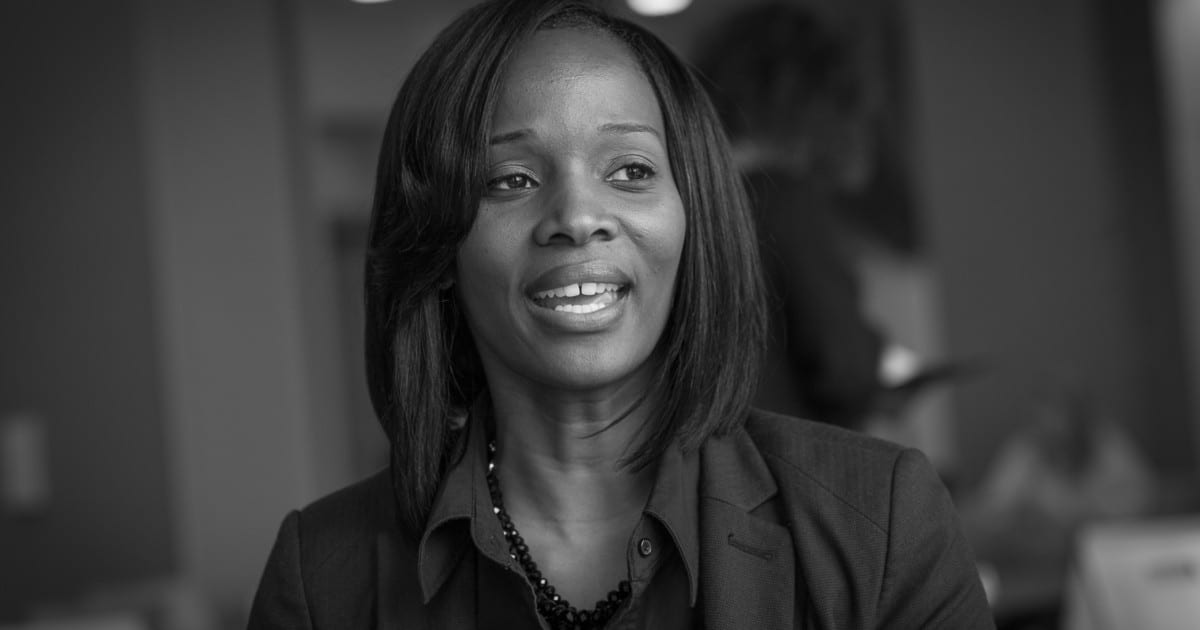The Deaton Scholars Program at the University of Missouri pairs partners in global change
It is well documented that mentoring relationships in college have a positive impact on student success, from retention and completion rates to life-long satisfaction levels.
A new program at The Brady and Anne Deaton Institute for University Leadership in International Development hopes mentoring will have an impact on global food security.
At the Deaton Institute at the University of Missouri, students interested in international development have come together in pairs to learn more and do more to positively impact communities throughout the world.
Unlike some mentoring programs that are designed for at-risk students who need extra support in academics, the Deaton program enlists high-achieving students with each other at varying stages in their university work to produce higher impact outcomes.
The program is one of many initiatives within the new Institute, founded by former Chancellor of the University of Missouri, Brady Deaton.
Founding Principles
When Brady Deaton stepped down as the University of Missouri’s Chancellor in 2013, after serving in that capacity for 10 years, the Board of Curators asked him if there was an area in which he’d like to continue working. Without hesitation, Deaton said, “global food security and removing people from poverty.”
In Jan. 2014, The Brady and Anne Deaton Institute for University Leadership in International Development was launched.
Its mission is to support and develop interdisciplinary research and applied programs focused on the food insecurity within developing countries and the US. Its aim is to help eliminate the contributing circumstance of extreme poverty, a goal Deaton had embraced decades earlier.
As is often the case when organizations are formed in one’s honor, the Deaton Institute strongly reflects the intellect, philosophy, and character of its founder. The inclusion of Deaton’s wife, Anne, in the Institute’s name, reveals both his humility and his deep appreciation for human partnerships.
“Anne has been such a strong force in everything I’ve done, including this program,” he said. “In fact, Anne had already served as an Appalachian Volunteer before we met, and we became acquainted while serving in extremely poor villages in Ecuador.
“From there, we went on to found a food pantry in our garage in Knoxville, Tennessee and organize a neighborhood delivery system. We’ve been committed to these issues [for] a long time.”
Deaton is one of the country’s premier scholars and policy experts on agricultural economics and global affairs. He splits his time heading the Deaton Institute with his work on the Board of International Food and Agricultural Development (BIFAD), to which he was recently re-appointed by outgoing President Obama.
Deaton earned a master’s degree in diplomacy and international commerce at the University of Kentucky in 1968. He went on to the University of Wisconsin, where he earned a master’s degree in 1970 and a doctorate in 1972, both in agricultural economics.
But it was his rural roots, growing up as one of nine children in Appalachia, that shaped his view of the world and his place in it. When he was 10, he began a long-standing involvement with 4-H, the nation’s largest youth development organization. When he was 20, he joined the Peace Corps.
Deaton believes that higher education – specifically higher education leadership – should be applied to solving global problems, because the point of higher education is to change the world.
“In starting the Institute, I really felt like the most important thing we could do in terms of food security issues was to increase higher education’s role in the development process,” he said.
He describes international development as economic development with a socio-economic and human dimension – the improvement of the human condition that stems from economic change and progress. Deaton believes, though not all his colleagues agree, that to do this work, the focus must be on agricultural development, with particular attention paid to small-scale farmers, because that is where so much of the poverty in the world is concentrated.
Partnerships in global change
The Institute has conducted several conferences, including last year’s 11th annual Universities Fighting World Hunger (UFWH) summit, a 350-person forum on global food security that was broadcast to partners and students around the world.
John Sexton was the dinner speaker for the university leaders attending the conference and a participant in conference dialogue.
“It was a transformational event for me and I suspect for many who attended,“ said Sexton, President Emeritus of NYU and Chairman of the Mary Christie Foundation. “The key to this approach is understanding our interconnectedness as humans and leveraging that power to improve conditions for whole communities. The energy level and commitment in the room was remarkable.”
Despite, or perhaps because of, the cynicism and violence experienced around the world, the students involved in the Institute are equally aspirational about their role in creating change. They are aware of their inter-dependence in a way that Deaton says he has never seen before. Social media has been a powerful tool as well.
“Students today realize they are part of a global community,” said Deaton. “Our students are working with many groups around the world. They keep each other informed on what’s happening. Everything that goes on here gets tweeted out, and they’re not superficial tweets.”
After the conference, the Deatons approached the student leadership group, undergraduate and graduate students who conduct research and run programs within the Institute, and asked what they would like to see the Institute take on to further its mission.
The students responded with a desire to start a peer mentoring program with a focus on disciplinary and cultural diversity in terms of domestic and international students.
They told the Deatons that they were interested in developing the “whole person concept:” to work with one another and focus on each other’s total success.
“These are all very successful students who have a lot to share and a lot to give,” said Chuka Emezue, the Institute’s research and communications coordinator. “You’ve got freshmen who are just starting out and medical students and grad students that feel they have so much to pass on. But it feels like we never have the time as students to sit down and have those conversations.”
Critical to the program are the diverse pairings. Domestic students are paired with international students, engineering majors with business students, Each “dyad” focuses on complementing each other’s knowledge and working together to develop tangible strategies by way of proposals. Each proposal is referred to as a “deliverable,” a document that pinpoints a topical issue to provide recommended solutions to the same.
The Deatons were receptive to the concept and felt the premise of the program closely aligned with the Institute’s mission.
“There is an interface among these knowledge bases that allows us to go forward and service society more effectively,” Deaton said.
The Deatons believe that through the mentoring program, students will become aware of the key role they play in realizing the issue of global food security in their lifetime, whether they are directly involved in it through their future careers or indirectly remain informed about public policy and the influence of elected and appointed leaders.
The students named themselves “The Deaton Scholars.” While students had to apply to the program, it was available to any student open to the “whole person” development theory, which emphasizes the value that is received through forming a relationship with a partner.
There is also a professional mentorship component to the program with speakers and presentations that allows students to better understand how they can be involved in the international development process.
“It will be very interesting to see how individual students from diverse departments come together to solve actual problems. This is not hypothetical,” said Emezue at the launch of the program.
Seventy students from diverse racial, religious, and ethnic backgrounds passed the criteria, which included a GPA minimum, and got to work in January of this year. Once they were paired, each of the dyads identified a project that they would work on together, with the hope that their initiative would be advanced beyond the semester and awarded a seed grant.
They were informed that three of the pairs would receive an award for their work and seed money to turn their projects into action.
Inspiration within
To inspire the students, Deaton enlisted some of the best faculty on campus. He said he looked for people with the right values, the right commitment, and an understanding of the importance of education in achieving outcomes across the world – people, he said, that really understand knowledge and value it over individual achievement.
“These are people that sort of believe that a person is made up of a lot of other people,” said Deaton. “There’s a moral foundation to what they’re doing and an integrity in every aspect of their relationships. These are things that are really important to young people. They pick up on this more than most people think.”
One of these individuals is Anne Marie Foley, who had a long-standing connection to Deaton’s work through her own. Foley is the Director of the Office of Service Learning at the University of Missouri and runs multiple service programs overseas and domestically that involve hundreds of students a year. The program bestows a minor in leadership and public services, which many of the Deaton Scholars have received.
“The synergy that is created in that kind of mentoring program is just magical,” said Foley. “They’re relating to other like-minded people from many other disciplines, and each of them is discovering that they have the heart, and the talent, to empower the lives of others in multiple ways.”
What Foley loves most about her own work is the impact it has on students.
“Today’s students are thirsty for meaning and eager for the validation that comes from discovering that they are important and effective and have skills that can change people’s lives. There is something really emotionally essential about the kind of activities and experiences that students engage in with service.”
The Deaton Scholars just completed their first semester. Each of the pairs of students were encouraged to develop approaches or strategies to alleviate some aspect of food and hunger issues.
Seventeen projects were developed and reviewed by three external faculty members, who then selected the top projects for seed grants. The projects outlined by the students addressed both domestic and international concerns about food security.
Deaton said the quality of the proposals was surprisingly high, given the extra-curricular nature of this work.
“As we reviewed the projects, we saw that every one of them could make important contributions to addressing the problems of food insecurity and/or mitigating extreme poverty,” he said. “We are committed to helping grow each of the proposals submitted.”
At the awards dinner in May, a panel of three faculty members and two of the Deaton Scholars shared their experiences in broad discussion with the students involved in the program. Due to the quality of proposals, the decision was made to award four seed grants of $500.00.
Of the projects recognized for seed grants, one focused on implementing a program of food, health, and nutrition literacy for international students in the local high schools. It will be implemented by visiting local food and vegetable producers, food stores, and other components of the food value chain.
Another proposal focused on translating the matching funds program of government feeding programs SNAP and WIC to enable a broader range of people to participate, with a focus on recent immigrants to the Columbia, Mo. community coming from the Congo, Somalia, Ethiopia, Eritrea, and Myanmar, who speak diverse, rare languages.
Two analytical proposals involved studying “food pantry deserts” to identify greatest domestic food challenges where the neediest families can be helped; and analysis of data for the past five years on the Urban Agriculture Center, Opportunity Gardens Program, with hopes of more effective targeting of the program.
Overall, the inaugural year of the Deaton Scholars program was a resounding success.
Many of this year’s participants will continue these scholastic relationships into next semester, as a new class of scholars comes on board. Staff is abuzz with new ideas for next year, with modifications based on what they learned.
Deaton believes the skills that develop through programs like the Deaton scholars are the essence of higher education and bring value to students as much as they produce results.
“We want good accountants for sure, but we want them to be broader than that, have an ethical base, and be able to quantify all kinds of dimensions, including how their work relates to the rest of the world,” he said.



